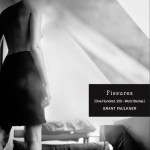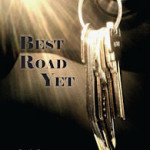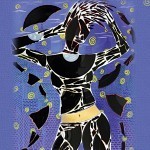Clifford Garstang's Blog, page 50
April 20, 2015
2015 Reading: The Half Has Never Been Told by Edward E. Baptist
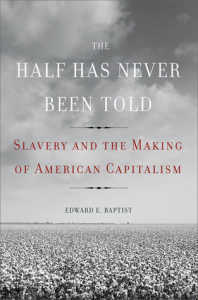 The Half Has Never Been Told: Slavery and the Making of American Capitalism by Edward E. Baptist
The Half Has Never Been Told: Slavery and the Making of American Capitalism by Edward E. Baptist
This is the book we’re discussing this month at Reading Liberally. The book is filled with remarkable detail about the economics of slavery and the industrial growth of America. So much detail that the book feels too academic for the typical reader. I found myself longing for an executive summary. A twenty-page precis would have been fine to make the point, I think. Still, the detail makes it all the more compelling.
Most of us already know (despite some modern denials) that slavery was evil. Despicable, unconscionable, usually brutal, and wrong. Many of our country’s early leaders were slave-owners even while professing opposition to the practice. Those who truly did oppose slavery lacked the political strength to do anything about it until Abraham Lincoln came along, more than eighty years after the country came into being. Slavery was an underlying theme of many of the largest political clashes our young country faced.
And anyone who doubts that the Civil War was fought over the issue of slavery should be forced to read this book.
April 15, 2015
AWP — Press 53 Booth
This year at AWP, instead of overwhelming myself with panels, I went to only one each day (because, frankly, I didn’t see a lot that appealed to me). The rest of the time I was in the bookfair, mostly at the Press 53/Prime Number Magazine Booth. That was fun, in part because so many people stopped by to say hello. I especially loved it when people I didn’t know came up to me to thank me for my Literary Magazine Rankings. It’s nice to be appreciated.
At the Press 53/Prime Number booth, I got to hang out with many other Press 53 Authors and help the publisher sell their books (along with mine). Also, most of these authors joined us for the Press 53 reading at Barnes & Noble on Friday night. I have most of these books now, and I look forward to reading the ones I haven’t yet read:
Paradise Drive by Rebecca Foust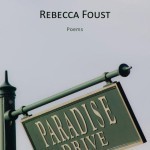
Twelve Women in a Country Called America by Kelly Cherry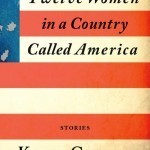
Frozen Latitudes by Therése Halscheid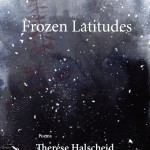
What Happened Here by Bonnie ZoBell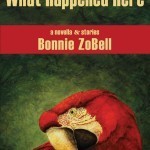
A Fingerprint Repeated by Jeffrey Condran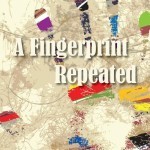
From the Crooked Timber by Okla Elliott
One Last Good Time by Michael Kardos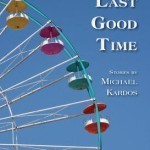
Paper, Cotton, Leather by Jenny Sadre-Orafai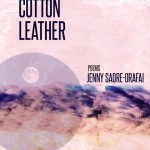
Scissored Moon by Stacy R. Nigliazzo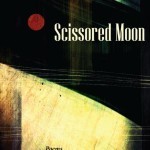
Tea in Heliopolis by Hedy Habra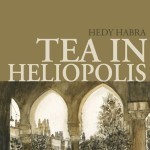
Eyes Like Broken Windows by Seth Michelson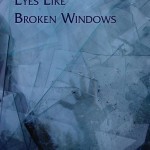
Cold Spring Rising by John Thomas York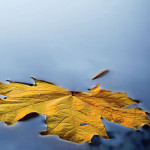
Unaccountable Weather by Kathryn Kirkpatrick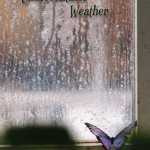
My Life as Laura by Kelly Kathleen Ferguson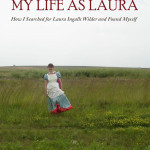
Home of the Brave edited by Jeffery Hess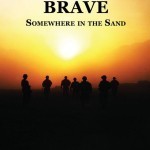
Blood Sisters of the Republic by Wendy Willis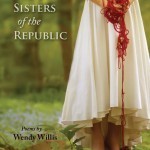
and my three books: In an Uncharted Country, What the Zhang Boys Know, and Everywhere Stories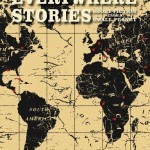
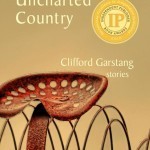
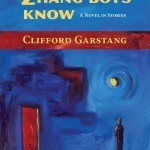
April 14, 2015
AWP — the book haul
My favorite thing about AWP is the bookfair. Seven hundred exhibitors–publishers, literary magazines, and services all showcasing their wares. In the past I’ve come home with a boatload of journals, and I did pick up a couple this year, but I concentrated this time around on books. Here’s most of what I got:
Kelly Luce’s story collection, Three Scenarios in which Hana Sasaki Grows a Tail (which I already had, but now I have a signed copy); 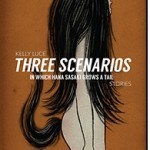
Michael Bazzett’s debut poetry collection You Must Remember This;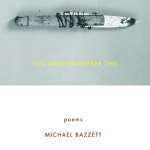
Austin Bunn’s story collection (coming out later this month from Harper), The Brink;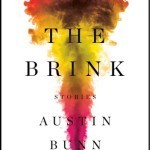
Angela Jackson’s new poetry collection, It Seems Like a Mighty Long Time;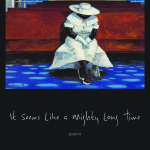
Claudia Emerson’s posthumous poetry collection The Opposite House;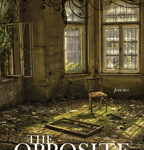
Michael Czyzniejewski’s latest story collection I will Love You for the Rest of My Life;
April Ford’s story collection The Poor Children;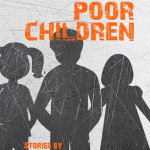
Stephen Eoannou’s story collection Muscle Cars;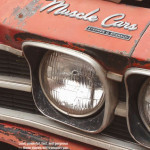
J.R. Miller’s novel Nobody’s Looking;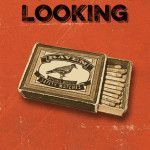
Kerry Howley’s nonfiction book,Thrown;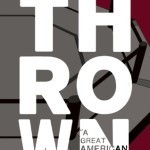
Daniel Torday’s novel The Last Flight of Poxl West;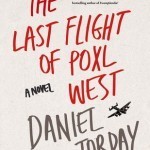
Seth Michelson’s translation from Hindi of Rati Saxena’s Dreaming in Another Land.
That’s more than I can read any time soon, but I’m glad to have them!
April 12, 2015
AWP15 Wrap-up
On Wednesday, I was scheduled on a 6:15 am flight to DC and then on to Minneapolis. But when I showed up at SHD (the tiny airport from which Silver Airways, a code-share partner with United Airlines, flies), I was informed that my flight had been cancelled. The young clerk I spoke with then proceeded to screw up my travel plans further by rebooking me on Delta from DC instead of United (although I believe it would have been possible to keep me on United). This had several consequences: I had to ride in a van to DC with other passengers similarly situated; I lost the first class upgrade I had paid for; and I also had to pay a fee to Delta for my checked bag (on United that would have been waived). I was not a happy flier.
Still, I got to Minneapolis in time to register for the conference, get settled into my hotel, and head over to the cocktail reception sponsored by the Authors’ Guild. That was very enjoyable and I met some very nice and interesting writers there, including the Executive Directory, Mary Rasenberger, who stopped by the Press 53 booth at the bookfair the next day. After that I met up with some friends at the Hilton bar for drinks and ran into a number of other friends, and finally went back to my own hotel and connected with my publisher at the bar there. Enough wine was consumed to make me forget about my travel woes, at least for a time.
Thursday marked the beginning of the conference. After visiting the booth in the bookfair, I attended a panel on structuring the short story. I’ve heard this topic discussed frequently over the years, of course, but all the panelists had smart things to say, so it was definitely worthwhile. The panel featured Caitlin Horrocks, Rebecca Makkai, Rob Spillman, and Pam Houston, and was moderated by Arna Hemenway. But then I spent the rest of the day in the bookfair, talking to people about Press 53, Prime Number Magazine, and my own books. That was great fun, but I was on my feet all day. Right after the bookfair I went for drinks and snacks hosted by the Millay Colony, where I saw an old friend and met some new ones. Then I tried to find the Ragdale folks who were supposed to be meeting in the Hilton bar, but I somehow didn’t connect with them, so I had drinks/snacks with some fellow Queens University of Charlotte MFA folks. Last up for the evening was a visit to Hell’s Kitchen for the Slippery Elm reading. (I’m an advisory editor, so I was glad to hear some of the work that the magazine has published.) By the end of the reading, I was done and headed back to the hotel.
Friday was very similar to Thursday. I started with a panel: The Ethics of Book Reviewing. This was a fascinating discussion, but I don’t think there was anything new said there. I’m frustrated when I see reviews by people I know to be close friends of the author of the book they are reviewing. That’s bad form, as these panelists understood, but it’s awkward to really call the writers on those transgressions. Then I was back at the bookfair all day until I headed over to a bar for the official Queens gathering. I got there early-ish because I had to leave early, but it was nice to see some folks there. Then I rushed up to the Barnes & Noble for the Press 53 reading. We had 19 people reading for 3-5 minutes each. That was fun, and no time to get bored. The Barnes & Noble people in the store were great and we had a nice audience. Then I rushed back the convention center for the Sewanee Writers Conference reception and connected there with some more old friends. And after that I wandered over to an art gallery where Copper Nickel was hosting a party. (Fun party, but I saw no signage, so I’m not even sure I was at the right party!)
Saturday was the last day of the conference. Again, I attended one panel, this one on “The Politics of Empathy,” which touched on the much-discussed topic of cultural appropriation in writing. The panelists gave a thoughtful discussion of the topic and reminded me to be sensitive the issue. Then I spent the rest of the day in the bookfair, splitting my time between standing in the Press 53 booth and wandering around the fair picking up some books I wanted. At the end of the day, although we knew about some closing-night parties, we were exhausted and I went to dinner (at Zelo, an excellent Italian place) with Kevin and Cathy from Press 53, then stopped for one drink at Brits, a pub on Nicollet Mall.
And then Sunday: early flight from MSP to IAD and then a long layover before my puddle-jumper to my “home airport,” SHD. That long layover was painful.
I’ve now been to nine AWPs in a row: Atlanta, New York, Chicago, DC, Denver, Chicago, Boston, Seattle, and Minneapolis (or I may have the order slightly wrong), and I’m tired. The conference has become a young writer’s game, it seems to me. And although I always see lots of old friends and have fun, and I love visiting the magazines and publishers in the bookfair, and I also enjoy being at the Press 53 booth when people stop by there, I’m not sure I get enough out of it to make it worthwhile. I think it’s great for teachers or for folks who want to teach. But I’m not sure it’s really worth the effort for people like me. So will I go to the Los Angeles AWP next year? I don’t know. The deadline for panel proposals is May 1 and so far I’m not on any proposals. The conference itself is March 30-April 2, 2016.
March 22, 2015
2015 Reading: This Changes Everything by Naomi Klein
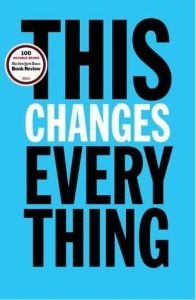 This Changes Everything: Capitalism vs. The Climate by Naomi Klein
This Changes Everything: Capitalism vs. The Climate by Naomi Klein
I understand that climate change is real; I accept that human activity is responsible; and I believe we should be doing everything we can to stop churning harmful emissions into the atmosphere. And yet this book, which is subtitled “Capitalism vs. the Climate,” actually made me question these beliefs. To put it simply, Klein has made her argument in such a way–with not even a nod toward rhetorical balance–that it becomes difficult to believe many of the assertions she makes.
The solution to the coming catastrophe that is climate change, she is saying, is to blow up the world as we know it, to end the global economic systems of trade and finance, to put an immediate end to the extraction and consumption of fossil fuels, to saddle corporations and the wealthy with the enormous cost of accomplishing these tasks, and while we’re at it, they should also be paying reparations to poor countries and indigenous peoples and the descendants of slaves, none of whom are responsible for putting us in the position we’re in. Even if she’s right–and her arguments aren’t, to me, compelling–she’s obviously hallucinating. None of that is going to happen, not even if the seas rise a foot, the glaciers all melt, and weather systems go even more berserk than they have already.
She begins the book by attacking trade and, especially, the free trade agreements that have been put in place, beginning with NAFTA. She may be right that these trade agreements are in conflict with the goals of other, later, agreements that seek to address climate change. But in my opinion she is not right that increased trade is necessarily the culprit. Trade agreements probably need to be reformed so that they take environmental and social impacts more into account, but they are not inherently bad.
And near the end of the book, she brings in the oddly inapplicable story of her own fertility history, and concludes, illogically, that she was able to conceive and carry her baby to term (despite a history of miscarriages) because she visited a naturopathic doctor. Never mind that women have had problems with miscarriages since forever and that there is no proof that any of the steps she took resulted in her successful pregnancy. She might as well have concluded that vaccines cause autism. (Indeed, I looked in the index to see if she might have addressed that topic as well.)
The bottom line: I know climate change is a serious problem, but this book (a) did not persuade me of that fact; and (b) did not point to a practical solution to that problem.
Recommendation: Don’t waste your time.
Best New Fiction Reviews — a new book review site
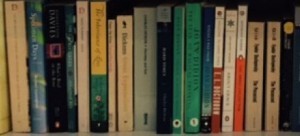 I am pleased to announce that I’ve teamed up with a few other writers to create a new book review site called Best New Fiction Reviews. Our plan is to post a new book review–generally of books by lesser known writers–every Tuesday, with a few other features thrown in from time to time such as interviews with authors and commentary on short stories.
I am pleased to announce that I’ve teamed up with a few other writers to create a new book review site called Best New Fiction Reviews. Our plan is to post a new book review–generally of books by lesser known writers–every Tuesday, with a few other features thrown in from time to time such as interviews with authors and commentary on short stories.
Our first review was posted this past week, with Vickie Fang writing about Kristin Valdez Quade’s Night of the Fiestas.
Check out the review and visit frequently. Also, Like us on Facebook and Follow us on Twitter.
March 19, 2015
2015 Reading: Brooklyn by Colm Toibin
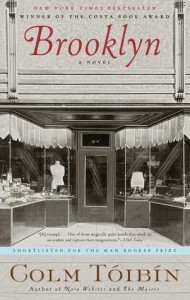 Brooklyn: A Novel by Colm Toibin
Brooklyn: A Novel by Colm Toibin
I listened to the audio version of this book, with appropriate Irish accents for many of the characters, something I would have lost if just reading. I might not have enjoyed the book as much as I did without those accents.
Even with the accents I have mixed feelings. The story follows Eilis Lacey, a young Irish girl, as she goes from Ireland to Brooklyn in the early 1950s in search of opportunities she won’t find at home. Her struggles seem very familiar, both internal and external, including her feelings about a young man she meets. When she returns home for a visit, her internal struggles escalate.
The cast of characters is appealing, although Eilis, the protagonist, is not, particularly. Still, the book is a nice look into the post-war Irish immigrant experience, and so for that reason I’m glad I read it.
Virginia Festival of the Book
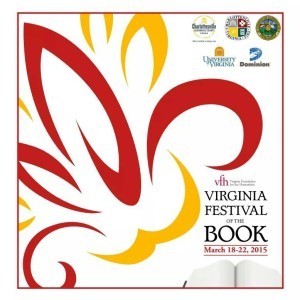 The Virginia Festival of the Book is a five-day literary orgy of readings and panel discussions centered on books. I started coming to the Festival shortly after I moved to Virginia in 2001, and I remember imagining that I would one day be on one of the panels. As it has turned out, for the past several years, I have either been a presenter or a moderator every year since my first book came out, which was 2009. I love doing it.
The Virginia Festival of the Book is a five-day literary orgy of readings and panel discussions centered on books. I started coming to the Festival shortly after I moved to Virginia in 2001, and I remember imagining that I would one day be on one of the panels. As it has turned out, for the past several years, I have either been a presenter or a moderator every year since my first book came out, which was 2009. I love doing it.
This year I appeared on a panel called Short Stories: Great Fiction in Small Bites with Kevin Clouther, author of the story collection We Were Flying to Chicago. I thought out panel at the New Dominion Bookshop went very well. All the seats were filled, Kevin started us off with a reading of the title story of his book and then I talked about and read from my anthology, Everywhere Stories. The book sales were brisk, so I consider the event a success.
That was yesterday, when I also attended a panel with three novelists: Sonja Yoerg (House Broken), Martha Woodroof (Small Blessings), both of which I’d read already, and Erika Raskin (Close), which I plan to read soon. Today I went to another novel panel, this time with Hilary Holladay (Tipton) and Audrey Magee (The Undertaking). And then I ran into some writer friends and we went out for a drink.
I have several panels I hope to attend on Friday and Saturday as well as a reception for authors. This is a great event and we are very fortunate to have it in our area.
March 16, 2015
The New Yorker: “All You Have to Do” by Sarah Braunstein
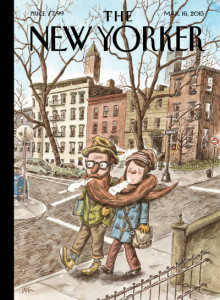 March 16, 2015: “All You Have to Do” by Sarah Braunstein
March 16, 2015: “All You Have to Do” by Sarah Braunstein
It’s 1972, Sid is 16, and he meets Bill, a tin foil salesman. Sid is an even-keeled kid with a furious sister and a little brother with a deformed hand. His life is okay but nothing special. One day at the grocery store he wins a “lifetime supply” of tin foil, which turns out to be eight rolls, but Bill also seems to be planning to give away his own possessions to Sid, possessions he no longer needs now that his wife has left him and he’s divorced. Sid is suspicious, and thinks Bill might be a homosexual. And that’s pretty much where the story ends.
As we learn from the Q&A with Sarah Braunstein, Bill is what’s waiting for Sid in the greater world, and Bill discovers that it’s not all that special.
Okay, that’s reasonable, and enough depth for the story to be worth reading. Still, can’t say I enjoyed it, but then I rarely am drawn to stories about teens or children.
2015 Reading: Silent Murders by Mary Miley
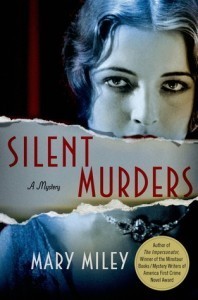 Silent Murders (A Roaring Twenties Mystery) by Mary Miley
Silent Murders (A Roaring Twenties Mystery) by Mary Miley
This is the second in a series of mysteries set in the Roaring Twenties. The first volume, The Impersonator, set in the Pacific Northwest, was interesting because the protagonist was participating in a scam to collect the inheritance of a woman missing for years and in the process found herself embroiled in bootlegging and murder. The impersonation alone gave the story suspense that didn’t depend on the solution to the murder mystery.
In this book, the same young woman is now in Hollywood, working for Douglas Fairbanks and Mary Pickford. Although she has an assumed name, like many wannabe stars in Hollywood, she’s basically herself here. But when a series of murders happen around her, she becomes a sleuth, aided by Fairbanks, and discovers the truth when the police don’t seem to be able to do so.
It’s a fast, enjoyable read, and the book’s use of historical figures many of us have heard of–Fairbanks, Pickford, Myrna Loy, Charlie Chaplin, etc.–is smart (although it does limit the suspect pool somewhat). The author’s detailed research is on display here, too, and the rendering of the 1920s is entirely convincing.
There is a fair amount of explanatory dialogue that was a bit frustrating–characters frequently tell each other things that they probably already know, but that the author wants the reader to know. But aside from that, it’s definitely a good read.

